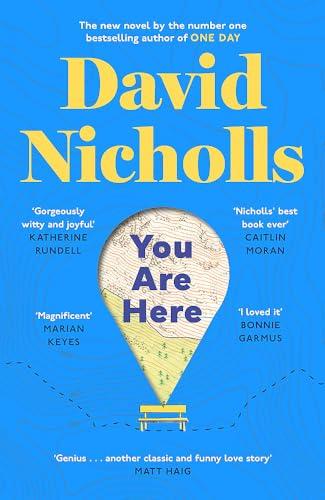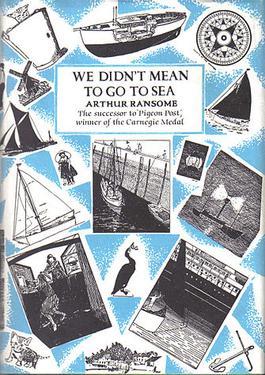
1. My cat, Dexter, is a keen reader and his favorite author is Georgette Heyer. I realised this some time ago, when I noticed that he came to join me and stayed longer when I was listening to an audiobook by her. At the first mention of the Viscount’s carriage, or sprigged muslin and ribbons there he was, settling his head on his paws and heaving a contented sigh. My other cat, Deedee, has no time for such fictional fripperies. Occasionally she will listen to some crime fiction, but with a contemptuous look in her eyes. Given that she is a highly efficient serial killer, she has some authority in these matters. Recently Dexter managed to tear a wound in his side (we’ve never had cats like these two for trips to feline A & E) and was agitated and unhappy in both the cone of shame and his cat onesie. It occurred to me to try an audiobook, so I put on The Quiet Gentleman, and the effect was immediate. Dexter stretched out on the bed, the tension left his body and he snuggled a little deeper into the duvet. This is exactly what a comfort read should do for you.
2. I can’t help but notice the difference in my reading patterns since I was last blogging. For the vast majority of my life I have been willing to read anything and everything. But in the past few years – probably because my problem with dry eyes means far less reading time – I have quietly crossed a Rubicon that means I’m far more selective. Let’s not go mad, I still buy more books than I can read, but since I now take a couple of weeks to read a book, rather than the old habit of three books a week, I pick and choose carefully. I’ve also found that reading on a Kindle is gentler on my eyes than the page, and so most of my reading is either audiobooks or ebooks. It’s funny to look back and think how much against the Kindle I was when it first came out, and now I love it. I wonder how I could have failed to foresee the very best advantage of it, which is that Mr Litlove doesn’t know how many books I’ve got! Just as well, since I’m also addicted to 99p bargains. I think there’s a kind of variation on the AA prayer for bookaholics that goes something like, God grant me the insight to know which books I will like and which I won’t, and the wisdom to discern between those that will appear as 99p daily deals, and those I need to pay full price for.

3. In current reading I finished David Nicholls’ You Are Here, and loved it. It’s an extremely enjoyable book, funny, heartfelt, honest, engaging. And I won’t be reviewing it as I have nothing to say about it. I’ve found this before. It’s not accurate to say that the books I straightforwardly enjoy never lend themselves to a critique, because sometimes they do. But there’s definitely a category of enjoyable books, simple models of perfect storytelling, that resist any attempts to put deeper meaning on them. And there’s nothing wrong with that. By contrast, Enter Ghost by Isabella Hammad is proving to be a far less engaging read. That’s not to say it isn’t a good book – it has some absolutely terrific scenes in it, and it’s saying important things. But I just find myself picking up one of the other ongoing books rather than returning to it. I must make a concerted effort to get to the end as I feel sure it will reward my patience.

4. Another book I finished last month was Coot Club by Arthur Ransome. I am hooked on the Swallows and Amazons series, which I never read as a child, and that now strikes me as surprising. My childhood reading was fairly one note – Enid Blyton (particularly the Famous Five and the boarding school books), the Malcolm Saville Lone Pine series, Nancy Drew, the Paddington books. Basically there’s a theme going on here – group dynamics with a moral. This could not have been further from my experience as a child, but I suppose that was the point. Anyway, Swallows and Amazons fits perfectly into this category with its potent message that doing the right thing will create the right outcome. The children fascinate me – such discipline, such seriousness, such dedication to learning how to do things the right way. I’m also impressed that each book’s blurb fails to tempt me – the children get interested in bird watching, or panning for gold in the hills, or divining water – and then I read the book and just inhale it, gripped from start to finish. That’s how good a storyteller Ransome is.
One book even caused me mild PTSD. This was We Didn’t Mean To Go To Sea, which pretty much sums up the story. The Walker children make a new friend on holiday near Harwich who has a bigger boat than they normally sail. They make a plan to sail it together for a few days. They run out of petrol, however, so their friend goes off to get some and unbeknownst to the children, is hit by a bus. The tide comes in, the boat slips its anchor and the children are pulled out to sea and into a storm. Part of the subsequent crisis is the terrible seasickness that Susan suffers. Susan gets a bad rap in these novels as she takes on the quasi-maternal role, her constant refrain that of regular food and decent sleep for the younger siblings. She’s written off as dull. Yet the intense drama of these lost at sea scenes focuses on the battle Susan has with herself against her rising nausea. Her determination to be stalwart, not to give in, to fight her body and be there for the others is never more powerfully depicted, and yet nature inevitably wins. When she’s finally overcome by sickness, I was ready for the whole of civilization to fall. John is left to sail the boat alone, and whilst this is his coming of age, it happens against a reckoning of how important Susan is to him, how necessary her support. I don’t think I’ve recovered from that novel yet.
5. In a sadly similar vein, my family has succumbed to an unpleasant norovirus. My dad got it first and gave it to my mum, which meant that at one point, my brother and sister-in-law had to go over and help give her a full change of clothes. This heroism resulted in them catching it too. I feel so much for them, I can’t express it. And so the feeling keeps metamorphosing into a reappraisal of crime fiction I’ve read in which the murder depends on the body being moved by one person alone. I’ve often thought that suspicious and now it seems patently impossible. I’ve also read books in which the perpetrator changed the clothes on the victim single-handedly. Nope, that’s not happening either.
6. Looking ahead, I have a fantastic book of literary essays I’m reading, and a new non-fiction title about Sylvia Plath that’s shaping up well. I’m in the mood for a thriller, so have cued up A Bird In Winter by Louise Doughty, who’s an example of theoretical comfort reading that’s actually very deep. On Kindle, I’m reading Jonathan Buckley’s Tell. I was expecting more than I’ve got so far, but it’s early days. We’ll see how it goes.
